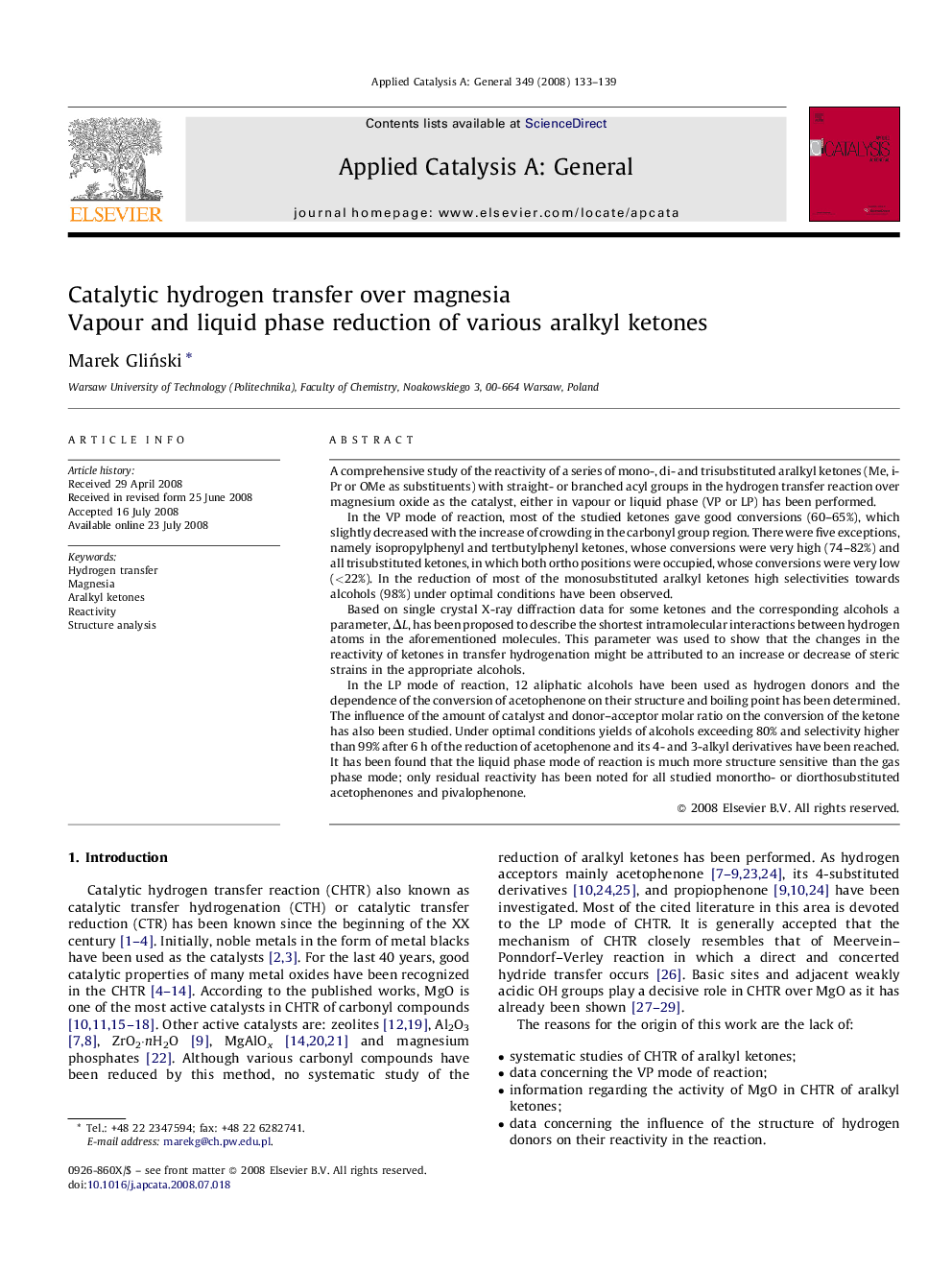| Article ID | Journal | Published Year | Pages | File Type |
|---|---|---|---|---|
| 42814 | Applied Catalysis A: General | 2008 | 7 Pages |
A comprehensive study of the reactivity of a series of mono-, di- and trisubstituted aralkyl ketones (Me, i-Pr or OMe as substituents) with straight- or branched acyl groups in the hydrogen transfer reaction over magnesium oxide as the catalyst, either in vapour or liquid phase (VP or LP) has been performed.In the VP mode of reaction, most of the studied ketones gave good conversions (60–65%), which slightly decreased with the increase of crowding in the carbonyl group region. There were five exceptions, namely isopropylphenyl and tertbutylphenyl ketones, whose conversions were very high (74–82%) and all trisubstituted ketones, in which both ortho positions were occupied, whose conversions were very low (<22%). In the reduction of most of the monosubstituted aralkyl ketones high selectivities towards alcohols (98%) under optimal conditions have been observed.Based on single crystal X-ray diffraction data for some ketones and the corresponding alcohols a parameter, ΔL, has been proposed to describe the shortest intramolecular interactions between hydrogen atoms in the aforementioned molecules. This parameter was used to show that the changes in the reactivity of ketones in transfer hydrogenation might be attributed to an increase or decrease of steric strains in the appropriate alcohols.In the LP mode of reaction, 12 aliphatic alcohols have been used as hydrogen donors and the dependence of the conversion of acetophenone on their structure and boiling point has been determined. The influence of the amount of catalyst and donor–acceptor molar ratio on the conversion of the ketone has also been studied. Under optimal conditions yields of alcohols exceeding 80% and selectivity higher than 99% after 6 h of the reduction of acetophenone and its 4- and 3-alkyl derivatives have been reached. It has been found that the liquid phase mode of reaction is much more structure sensitive than the gas phase mode; only residual reactivity has been noted for all studied monortho- or diorthosubstituted acetophenones and pivalophenone.
Graphical abstractModerately high yields of phenylalkanols (60–80%) were obtained in the vapour and liquid modes of transfer hydrogenation in the presence of MgO as the catalyst. The causes of the exceptions were explained based on X-ray diffraction studies. The liquid phase reduction over MgO is the more structure sensitive of the two.Figure optionsDownload full-size imageDownload as PowerPoint slide
